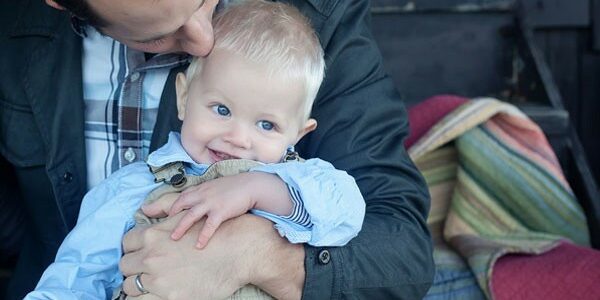Sitting alone in a corner, I relaxed into the ambience of a cozy coffee shop. I sipped my coffee, pulled out my Bible, and waited for a friend to join me for breakfast. The room was filled with tables of new couples and old friends. Time passed slowly as I emptied and refilled my cup but my friend never arrived. As I paused to enjoy the jazz overhead I smiled to myself about the irony of this situation. A few months ago I began to ponder the unique witness of the Christian single person, and this moment was testing my hypothesis.
The single person, through their visible solitude, witnesses to the fact that every person is called to intimate communion with the Trinity.
What is more, it is the single person’s desire for communion that witnesses to man’s longing for communion with God. The single life, whether temporary or chosen for life, gives an invaluable witness for all Christians.
God made us for communion when created us: “It is not good for man to be alone” (Gen 2:18). However, if we are made for communion with God, then it is clear that any form of communion we experience on earth will not completely fulfill us. Our relationships with loved ones are only a foretaste of the perfect communion we will have in Heaven.
Note well that “solitude” is quite different than “loneliness“ or simply “being alone.” Being alone is a very isolating experience in which there is a lack of relation with anyone. Yet when one is in solitude, one has a connection with others or God but is by oneself.
Saint John Paul II, in his general audiences that comprise A Theology of the Body, examines the second creation account in Genesis and suggests that God created Adam and delayed the creation of Eve to promote Adam’s self-discovery, namely, his desire for communion and his true relationship with creation and God. John Paul II calls this experience “original solitude.”
“Without that deep meaning of man’s original solitude,
one cannot understand…the situation of man…
[Man is] set into a unique, exclusive, and unrepeatable relationship with God himself” (6:2).
Saint John Paul II
The single person’s state is a reminder and sampling of original solitude. The single person’s solitude–not loneliness–makes his or her longing for communion visible and even appealing.
If the single person lives in a state of loneliness, they witness to nothing but emptiness. If they live in solitude, they witness to the longing every person should have for communion with God and it is a witness which stirs others.
The single person is made ready for the heavenly nuptials by living in a state of longing for communion. He or she reminds the world that from the moment we were baptized we entered into a covenantal relationship with God and we must build this relationship now and long for its complete fulfillment with God in Heaven. In the state of marriage, a spouse is God’s gift as a means to prepare one for the definitive communion with the Trinity.
In the consecrated state of the religious or priestly life, one has a slight taste of the Trinitarian communion on earth through his or her consecration or ordination. The solitude of the single person enhances the beauty of communion in the married and consecrated life. The choice of the single person to avoid intimate relations with another outside of marriage witnesses to the dignity of each human person. It “keeps alive in the Church a consciousness of the mystery of marriage and defends it from any reduction and impoverishment” (Familiaris Consortio, no.16).
Also, because the single person is unconsecrated, the spiritual communion of the consecrated person is all the more “a particularly profound expression of the Church as the Bride” (Vita Consecrata, no.19) and a sign of dedication.
The single person’s solitude is a reminder for each of us. At some point we all pass through the single state before choosing marriage or consecration, or even after the death of a spouse. It is meant to be a time of self-discovery, preparation, and purification as it was for Adam.
This time of solitude gives us the opportunity to discover how the Trinity is truly our complete fulfillment.
This time helps us to purify our motivations and to embrace with understanding the fullness of the commitment we make in choosing our vocation. Thus the single person’s solitude brings to mind this fruitful time in our life.
All of this passed quickly through my mind as I sat in the café and smiled at God’s humor. I could have sat there annoyed, embarrassed, or sulking because my friend did not show up. I could have been standoffish, pretending I did not want company. But in reality I desired companionship, and that desire sprang from my deeper longing for eternal communion with God.
Was I a witness to anybody there that morning? I honestly doubt anyone noticed me or gave a value to my solitude; maybe the experience was just for me. It is unfortunate that few notice the significance of the single state for it is a gift. The next time you talk with someone living the single state, allow their present vocation to stir your own longing for communion with God.
Melissa Prazak is passionate about the New Evangelization and has a M.A. in Philosophy from the Center of Thomistic Studies at the Basilian University of St. Thomas. She has a special love for St. John Paul, kolaches, and blues dancing. And, since community aids us in persevering in hope, Melissa uses her Texan roots to foster Catholic community through good-old fashioned southern hospitality.



